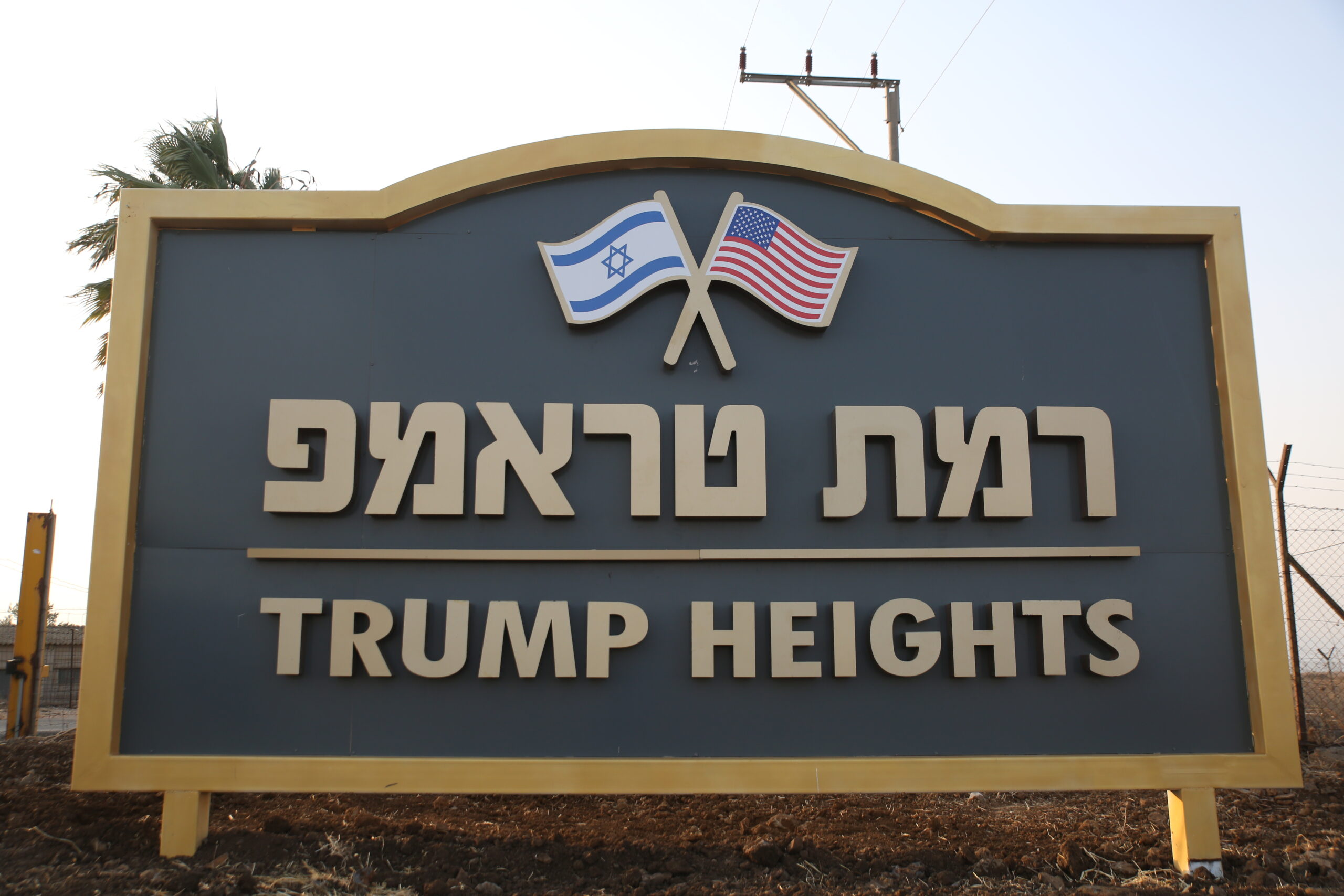Syria has launched a renewed diplomatic campaign demanding international recognition of its claim to the Golan Heights. Speaking before the UN Security Council, Syrian envoy Ibrahim Olabi declared that the Golan “will remain Arab and Syrian” and called for “decisive” international action against Israel. The move is backed by Turkey and several Arab states. In Jerusalem, officials responded that Israel will not surrender “even one centimeter” of the Golan.
This push comes as Syria attempts to rehabilitate its global standing under its new strongman, Abu Muhammad al-Jolani. Al-Jolani was a senior commander in Jabhat al-Nusra, the Syrian branch of al-Qaeda. During the civil war, forces under his authority carried out executions and expulsions of Druze and Christian communities in Idlib, Jabal al-Summaq, and parts of Aleppo province. Entire villages were pressured to convert or face removal. Churches from Maaloula to Idlib were desecrated or destroyed. Now, the same man is positioning himself as a statesman calling on the UN to restore Syria’s “sovereignty.”
Israel annexed the Golan Heights in 1981 and views it as essential to national security. In 2019, U.S. President Donald Trump formally recognized Israeli sovereignty, and Israel established the community Ramat Trump (Trump Heights) in his honor. Before 1967, Syrian artillery stationed on the ridge routinely shelled Israeli towns and agricultural communities in the Galilee.
Even before the civil war, the Syrian state was not a stable or peaceful neighbor. More than 450,000 Syrians were killed in the civil war in which President Bashar al-Assad was accused of using chemical weapons against civilians.
Today, it is led by a man who previously presided over the killing and dispersal of minority populations. Golan’s Druze villages, who have lived under Israeli administration for decades, understand exactly what would happen if Syrian forces returned to the ridge. Their fear is not theoretical. It is a memory.
There is also the northern dimension described in prophecy. The threat in the end-of-days scenario of Gog and Magog is described as emerging min yerekhat tzafon—from the uttermost north—moving toward a secure Israel.
“You will come from your home in the farthest north, you and many peoples with you… a great horde, a mighty army” (Ezekiel 38:15).
This does not mean the current Syrian demand is itself Gog and Magog. But the geographic axis is the same: the northern approach has always been the direction of existential threat to Israel. Control of the high ground of Bashan is part of preventing that danger.
Syria is attempting to rebrand itself diplomatically while ignoring the atrocities committed under the command of its current ruler. The UN members who echoed Syria’s demands did not mention the Christians expelled from Idlib, the Druze coerced into forced conversions, or the villages emptied under al-Jolani’s authority.
But the Golan is Bashan, the northern frontier described in the Bible. The region was granted to the half-tribe of Manasseh. Golan itself is listed explicitly as a ir miklat, a city of refuge:
“Golan in Bashan for the Manassites” (Deuteronomy 4:43).
Mount Hermon, which dominates the Golan, marks the northern boundary of Biblical Israel in several verses (Judges 3:3; 1 Chronicles 5:23). Psalm 42 describes the feeling of standing before Hermon’s heights. The Bible places this region firmly within the historic and covenantal geography of Israel. To claim that Jews have no historical or moral claim to the Golan is simply inaccurate.
The Sages addressed the question of borders not as romantic nationalism but as the responsibility that comes with stewardship of the Land. Land is held by those who preserve life upon it. The Golan is part of Israel’s daily security reality: whoever holds it controls the Galilee.
Israel’s position is straightforward: the Golan is essential to the protection of the people living below it. It is historically part of Israel, named in the Bible, settled by Israel, defended by Israel, and secured by Israel after Syrian attacks. The demand to hand it to a regime built on repression and sectarian violence cannot be taken seriously.




